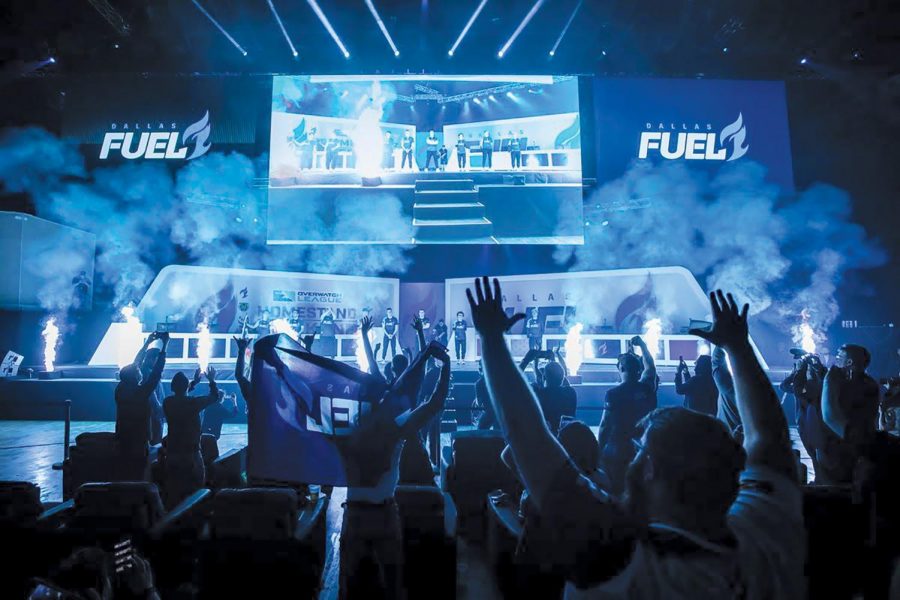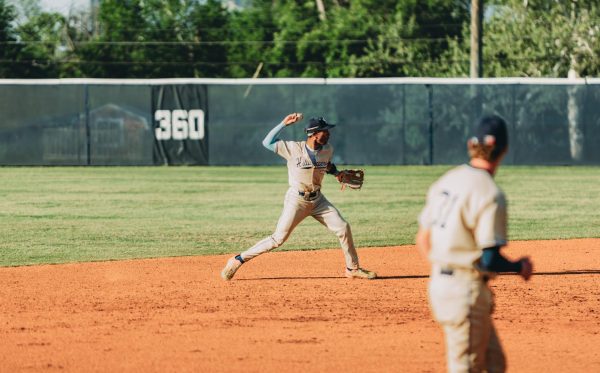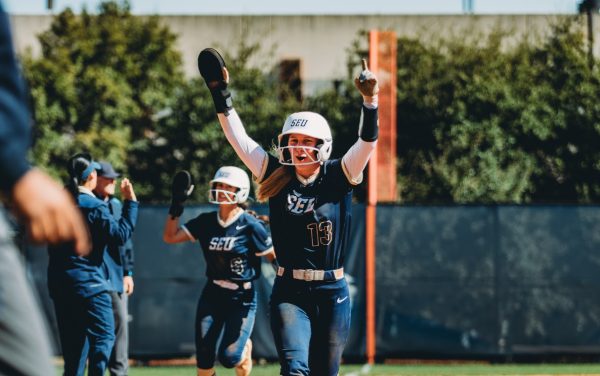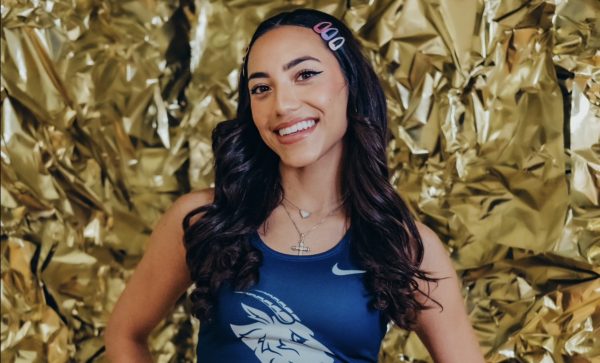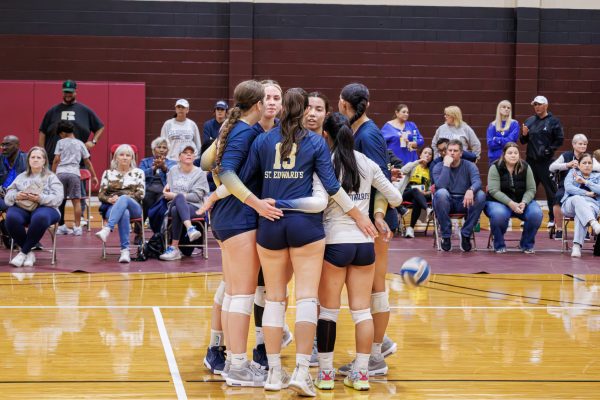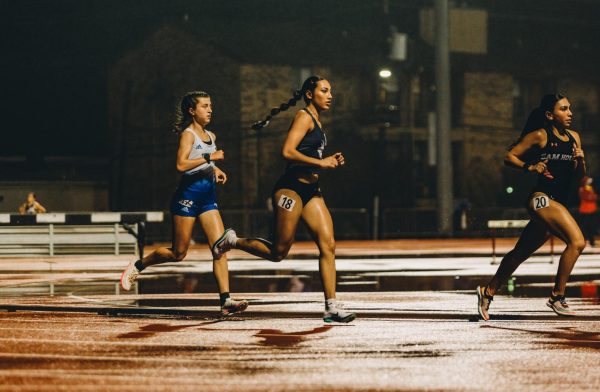One game at a time: dealing with the pressures of professional sports
Esports is quickly becoming one of the most popular competitive events on all platforms.
Esports have the perception of being a field that has a lot less talent disparity at the upper ranks. With less talent gap, the deciding factor in many encounters, outside of coaching and roster construction, tends to be who comes in with the most confidence.
Recently, esports has been trending towards stronger foundations for players in order to assist in maintaining their mental health and keeping their heads on straight. Zachary “ZachaREE” Lombardo has the opportunity to experience this trend from the front lines as a player for the Overwatch League franchise, Dallas Fuel.
Lombardo was signed by the Dallas Fuel when he was still only 17 years old, but he had already been a salaried professional Overwatch player when he was 16.
“I originally wasn’t even planning on getting the game, but a couple of my friends kind of peer pressured me into it,” Lombardo told me. But after he caught wind of a certain bow wielding character in the game, Hanzo, he was hooked.
“I kind of just no-life played the game once it came out. I have always playing games like ‘World of Warcraft,’ ‘Battlefield,’ ‘Call of Duty,’ so when ‘Overwatch’ came out, it was no different. Pretty much all I would do when I’d get home was do my school work, do whatever extracurriculars I had, like soccer, then I’d play the game.”
Once the ranked system was implemented into Overwatch in the summer of 2016, Lombardo noticed that he was ranked at or above many of the “pro” players he would watch stream, such as popular streamer and former pro Brandon “Seagull” Larned.
“Around season two (fall 2016), I started joining unsigned teams and playing in tournaments for fun. That eventually transitioned into me getting tryouts for other teams.” This led to Lombardo getting many opportunities to play on teams for money, moving up the professional ranks.
With the creation of the Overwatch League, many of the organizations that operated teams and tournaments released their players to the league, allowing Lombardo to join Fusion University. Fusion University is a part of Overwatch Contenders, which is best described as the minor leagues for the Overwatch League.
Fusion University was, and still is, the best contenders team ever, winning the North American Contenders title in seasons one and two (with Zacharee), and recently winning season three. This success allowed him the opportunity to represent the U.S. in the Overwatch World Cup in 2018, and eventually led him to be signed by the Dallas Fuel.
The transition to the top professional level of any sport is hard. But esports and most notably Overwatch League have seen the effects that stress, pressure, and poor mental health can have on even the best of players. In addition to this, players burning out on the the game is also increasingly common.
This season alone, three notable players have retired from the league, most notably Lombardo’s teammate on the Fuel, Hyeon “EFFECT” Hwang, who specifically mentioned burnout from the game and his own battle with depression as his reasons for retiring. Even coaches fall victim to burnout, as Christian “Cocco” Jonsson, a position coach and former player of the Fuel recently resigned from his posts citing burnout.
The league tries to do what it can to keep the players in a good mental state. Lombardo explains, “Overwatch League doesn’t come in and say exactly what we need to do, but they do set standards for like what the teams need to do to help us out. They have housing standards (for the team houses), and healthcare standards along with the minimum salary.”
Beyond that, the responsibility of keeping players in a good headspace falls on the organization themselves. Since the players spend a large amount of their days practicing, these managers make sure the players don’t have to stress over the little things.
“They do a really good job of making sure we’re fed.”
From there, the players have to find ways to tend to themselves. Since Overwatch is a hero-based shooter, the addition of new characters can vastly affect the way the game is played.
Sometimes this optimal strategy, or meta as it’s called, can have harsh effects on the players as they can’t shine in the roles they used to. For example, Lombardo is in what is called “Brig Jail,” where they only get the opportunity to play as the hero Brigitte, which many deem as boring, and low skilled. This position also makes Lombardo prone to a lot of criticism from viewers, whether it’s deserved or otherwise. When asked about how he deals with criticism, Lombardo simply said, “Ignore it. Most of the people saying bad stuff aren’t really fans anyway.”
Lombardo knows that team personnel can only help him so much, so there will be things he will have to take care of himself, saying “If it’s something in-game related, I’ll talk to my teammates and make sure it’s getting resolved, but beyond that I talk to my mom, my girlfriend, my dad if anything is wrong and I need someone to talk to.”
With most players coming to the Overwatch League from Korea and China, opportunities to see and communicate with family tend to be few and far between. Lombardo, on the other hand, had been able to see his family multiple times this season, be it through facetime or his family coming to matches.
“Time zones really do suck,” Lombardo eloquently explained. “I think it would obviously feel bad to be a Korean player or a Chinese player who has family on the other side of the world and the times zones are flipped so it becomes really hard to talk to them.”
Slowly but surely, the League and teams are figuring out how to deal with player burnout and the mental health of it’s players. If the trends continue, and players are able to handle the pressures more effectively and tank criticism as effectively as Zack Lombardo can, the kids will be alright.


